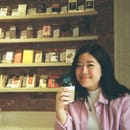This is a sponsored feature. All opinions are 100% from Her Campus.
When movies, shows, or plays decide to take on sensitive subjects, they’re often not handled with the right care or nuance. But The Roundabout Theatre Company’s new play, Usual Girls, serves as a welcome example on how to portray subjects like racism and consent. Written by Ming Peiffer, Usual Girls premiered as part of The Roundabout Theatre Company’s Underground program that focuses on giving new playwrights their debut. It’s a coming of age story about Kyeoung, a Korean-American girl growing up in the Midwest. Starting from the 80’s and following Kyeoung up until 2018, the play sees her experience racism and misogyny perpetuated by various people in her life.
Production photos by Joan Marcus
There’s so much about Usual Girls to love and discuss; so much that makes you laugh before smashing your heart to pieces. What really stands out is the tireless effort everyone involved puts in for the audience. Having conversations on trauma, racism, and misogyny is difficult. Constructing a whole performance about it all to be put on display over and over, is a whole other demanding beast. But Usual Girls doesn’t hesitate to go through that exhausting process for its audience.
Midori Francis as Kyeoung was a standout. Despite being in almost every scene, each one calling for more and more nuance and exertion, Francis never stumbles. In her performance of Kyeoung’s early years, Midori Francis embodies how it feels to grow up as the other in its awkward, painful, but also sometimes hilarious entirety. In Kyeoung’s adult years, Francis shows the audience how Kyeoung processes trauma with incredible vulnerability.
Production photos by Joan Marcus
The supporting cast that includes Abby Corrigan, Nicole Rodenburg, and Raviv Ullman, were also vital in portraying Kyeoung’s experience. You watch these characters form notions on race and consent from childhood to adulthood. There’s an escalation from childhood taunting, kids parroting racist things they hear, to the overt and complicit prejudice in the teenage years and adulthood. The supporting cast plays this escalation with great detail and subtlety.
Framing and containing all of the great performances, is the plays structure. Usual Girls takes you through Kyeoung’s life in literal snapshots, each scene is transitioned by a flash of light (quick warning: it’s a strong effect and there are also strobe lights featured later in the performance). The effect is fitting in how jarring it can be. You’re not given time to really adjust. You’re unprepared for everything that comes. It’s like the synopsis in Playbill says, “How do girls grow up? Quickly, painfully, wondrously.”
With its quick pace and structure, the play throws the audience scrambling into adulthood, just like Kyeoung is forced to grow up. And that’s really what I loved most about Usual Girls. For all the effort, fun, complexity, and thought the production gifts its audience, it asks for the same in return. When you’re watching Usual Girls, you can’t watch passively; it literally snaps you into attention. The play shares Kyeoung’s most treasured memories but also asks you to process her trauma, take on some of her burden. And complex representation of women of color that demand that kind of engagement, is still hard to come by – not just on stage, but in any medium.
What’s more is that Usual Girls is more proof that audiences will support these kinds of diverse stories. Due to high demand, the play was given an additional week at the The Harold and Miriam Steinberg Center for Theatre, that sold out in a day. If you’re interested though, still do keep up to date with their availability and ticket sales. Also check out more upcoming Roundabout Underground productions to support diverse stories and new upcoming playwrights!


